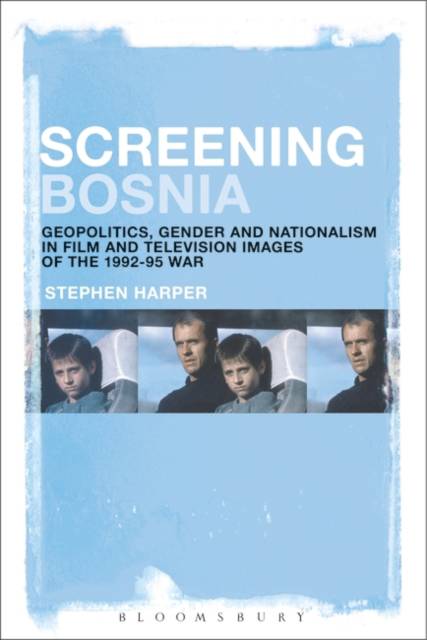
- Afhalen na 1 uur in een winkel met voorraad
- Gratis thuislevering in België vanaf € 30
- Ruim aanbod met 7 miljoen producten
- Afhalen na 1 uur in een winkel met voorraad
- Gratis thuislevering in België vanaf € 30
- Ruim aanbod met 7 miljoen producten
Zoeken
Screening Bosnia
Geopolitics, Gender and Nationalism in Film and Television Images of the 1992-95 War
Stephen Harper
Paperback | Engels
€ 83,45
+ 166 punten
Omschrijving
The Bosnian war of 1992-1995 was one of the most brutal conflicts to have erupted since the end of the Second World War. But although the war occurred in 'Europe's backyard' and received significant media coverage in the West, relatively little scholarly attention has been devoted to cultural representations of the conflict. Stephen Harper analyses how the war has been depicted in global cinema and television over the past quarter of a century. Focusing on the representation of some of the war's major themes, including humanitarian intervention, the roles of NATO and the UN, genocide, rape and ethnic cleansing, Harper explores the role of popular media culture in reflecting, reinforcing -- and sometimes contesting -- nationalist ideologies.
Specificaties
Betrokkenen
- Auteur(s):
- Uitgeverij:
Inhoud
- Aantal bladzijden:
- 184
- Taal:
- Engels
Eigenschappen
- Productcode (EAN):
- 9781501346347
- Verschijningsdatum:
- 20/09/2018
- Uitvoering:
- Paperback
- Formaat:
- Trade paperback (VS)
- Afmetingen:
- 156 mm x 234 mm
- Gewicht:
- 263 g

Alleen bij Standaard Boekhandel
+ 166 punten op je klantenkaart van Standaard Boekhandel
Beoordelingen
We publiceren alleen reviews die voldoen aan de voorwaarden voor reviews. Bekijk onze voorwaarden voor reviews.







